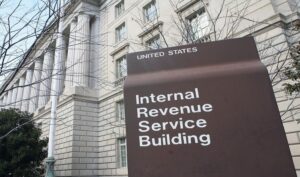
There are nearly 100,000 undocumented students who graduate from U.S. high schools each year according to a recent report. And although an education in U.S. public schools through grade 12 is guaranteed by law, most (if not all) undocumented students face legal and financial barriers to higher education. Improvements are slow, but change is underway — making college education attainable for Dreamers.
Thus far Congress has failed to pass a federal DREAM Act, a bill that provides a lawful status and makes higher education more accessible for undocumented youth. For now the DACA program and a patchwork of state-level DREAM Acts are easing the pain. Sadly however, over half the nation’s states have not passed DREAM-style legislation and do not have policies that are friendly to undocumented student residents. This means that an undocumented immigrant resident who wants to go to a state college, university, or community college has to pay the much pricier out-of-state tuition rate. What’s more, undocumented students, even with DACA, are ineligible for grants and scholarships at the federal level.
College Admission for Undocumented Students
As an undocumented immigrant you probably know that your education in U.S. public schools through grade 12 is legally guaranteed. Some undocumented students assume that they cannot legally attend college in the U.S. However, there is no federal or state law that prohibits the admission of undocumented immigrants to U.S. colleges, public or private. No federal or state laws require students to prove citizenship in order to enter U.S. institutions of higher education. Yet institutional policies on admitting undocumented students vary.
“…denying [undocumented] children a basic education [would] deny them the ability to live within the structure of our civic institutions, and foreclose any realistic possibility that they will contribute in even the smallest way to the progress of our Nation”
Plyer v. Doe (1982)
College Tuition
Many state colleges and universities charge undocumented students out-of-state tuition fees (even if the student is a longtime resident of the state). Obviously, this policy can put college out of their reach financially. However, several states have passed DREAM Acts or enacted policies that provide in-state tuition. Requirements vary by state. In general, students must live in-state and attend high school for a specified period (1 to 4 years), graduate or receive their GED, and must sign an affidavit stating their intention to file for legal immigration status. There are several states that have facilitated a college education for Dreamers by supporting in-state tuition:
States Supporting In-state Tuition for Undocumented Students
| State | Bill/Policy | Year Enacted | Financial Aid |
| California | AB 540 | 2001 | Yes |
| Colorado | SB 13-033 | 2013 | N/A |
| Connecticut | HB 6390 | 2011 | N/A |
| Florida | HB 851 | 2014 | N/A |
| Illinois | HB 60 | 2003 | N/A |
| Kansas | HB 2145 | 2004 | N/A |
| Maryland | SB 167 | 2011 | N/A |
| Minnesota | SF 1236 | 2013 | Yes |
| Nebraska | LB 239 | 2006 | N/A |
| New Jersey | SB 2479 | 2013 | No |
| New Mexico | SB 582 | 2005 | Yes |
| New York | SB 7784 | 2002 | N/A |
| Oklahoma | SB 596 | 2003 | N/A |
| Oregon | HB 2787 | 2013 | N/A |
| Rhode Island | Policy S-5.0 | 2011 | N/A |
| Texas | HB 1403 | 2001 | Yes |
| Utah | HB 144 | 2002 | N/A |
| Virginia | HB 779 | 2014 | N/A |
| Washington | HB 1079 | 2003 | Yes |
States that have gone out of their way to bar undocumented immigrant students from in-state tuition benefits include Alabama (HB56, 2011), Arizona (Proposition 300, 2006), Georgia (SB 492, 2008), South Carolina (HB4400, 2008), and Indiana (H 1402, 2011).
Financial Aid & Scholarship Programs for Dreamers
 Undocumented students cannot legally receive any federally funded student financial aid, including loans, grants, scholarships or work-study money. Therefore, you should not fill out the Free Application for Federal Student Aid (FAFSA) unless you are a U.S. citizen or other eligible non-citizen.
Undocumented students cannot legally receive any federally funded student financial aid, including loans, grants, scholarships or work-study money. Therefore, you should not fill out the Free Application for Federal Student Aid (FAFSA) unless you are a U.S. citizen or other eligible non-citizen.
Likewise, most states restrict financial aid eligibility to citizens and permanent residents. However, some states do grant eligibility for state financial aid to undocumented students who qualify for in-state tuition. TheDream.US has emerged as one of the highest profile national scholarship funds for undocumented students. To qualify, applicants must have received DACA. However, there are different scholarship programs available with varying requirements.
Scholarship Programs
- The Dream US
- MALDEF
- Scholarships A-Z
- Union Plus
- Scholarship America
- Hispanic Scholarship Fund
- Golden Door Scholars
- Ford Foundation
- Gates Millennium Scholars
Once you’ve selected your school, be sure to review the school’s on list of financial aid and scholarship resources. Some smaller scholarship programs may be school-specific.
For more information about finding colleges as an undocumented student, applying without status, and college application tips, check out Best College’s College Guide for DACA and Undocumented Students.
About CitizenPath
CitizenPath provides simple, affordable, step-by-step guidance through USCIS immigration applications. Individuals, attorneys and non-profits use the service on desktop or mobile device to prepare immigration forms accurately, avoiding costly delays. CitizenPath allows users to try the service for free and provides a 100% money-back guarantee that USCIS will approve the application or petition. We provide support for the DACA Renewal Application (Form I-821D), Adjustment of Status Application (Form I-485), and several other immigration services.
Note to Reader: This post was originally published on May 18, 2019, and has been modified with improvements.
Want more immigration tips and how-to information for your family?
Sign up for CitizenPath’s FREE immigration newsletter and
SAVE 10%
on our immigration services




